
Nib International Bank registered a remarkable profit growth in the last fiscal year, surpassing the industry average growth rate of 33pc. Its net profit expanded by 44pc to 1.04 billion Br.
The profit expansion helped the Bank’s earnings per share (EPS), net profit divided by the total number of shares held by over 4,700 shareholders, grow by eight percent to 166 Br.
The profit and EPS performance of Nib is impressive, according to Abdulmenan Mohammed, a financial statement analyst with two decades of experience.
"The EPS could have been much higher if not for the injection of massive fresh capital," said Abdulmenan.
During the reporting period, the Bank increased its paid-up capital by 30pc to 3.4 billion Br, standing out as one of the well-capitalised financial institutions.
At a time when the industry is facing not only health but also economic consequences, Nib is also looking to the future; a future that is surely even more complex and, above all, more ambiguous than ever, according to Woldetensai Woldegiorgis, board chairperson of Nib.
“The Bank is actively contributing, as in the past, to the search for the implementation of real and tangible solutions to financial challenges,” remarked Woldetensai.
A surge in interest income is the major reason behind improved profit performance at Nib. The Bank's interest on loans advances and National Bank of Ethiopia (NBE) bills soared by 36.5pc to 3.9 billion Br.
Income from commissions and fees have also shown a rise of 19pc to reach 495.7 million Br. While other operating revenues swelled by 129pc to 153.9 million Br. The income from non-financial intermediation activities was also remarkable.
The continuous depreciation of the Birr against a basket of foreign currencies has significantly undermined the income of the Bank from foreign currency dealings, according to Genene Ruga, president of Nib.
"Banks are incurring losses month after month," said Genene.
Unlike the five percent annual nominal depreciation rate of the Birr observed over the past couple of years, the local currency has been continually weakening by approximately 0.3pc weekly over the past year.
The increase in revenues was followed by a huge expansion in expenses, which showed a 34pc rise. Interest on savings soared by 39.5pc to 1.7 billion Br.
This must have been due to the considerable expansion of deposits, according to Abdulmenan.
Nib's salaries and benefits climbed by 35.5pc to 952 million Br and other operating expenses went down by 22.6pc to 266 million Br. By the end of the last fiscal year, the total staff of the Bank grew by 19pc to 5,934 employees at its 302 branches across the country.
Genene recounted that the branch expansion drove the rise in expenses.
"There is also a drastic rent price increase in the market," he told Fortune.
Provision for the impairment of loans and other assets significantly declined by 55.5pc to 29.7 million Br, and the expert asserted that the reduction is an indication of good credit management.
The total deposits Nib mobilised reached 33.7 billion Br, a 21.6pc growth from the previous year. The outstanding loans and advances of Nib marked 25.8 billion Br, registering a 32.7pc growth. The loan-to-deposit ratio at the Bank increased to 76.5pc from the previous year’s figure of 70pc.
This is a good improvement, for which the management of the Bank should take credit, according to Abdulmenan.
"However, care should be taken against a further increase as it may undermine the liquidity of Nib," he said.
"The Bank is using its resources efficiently," said Genene, who stated that Nib was battling with a liquidity problem three years ago. "We're in a better position in the past two years."
The total assets of Nib expanded significantly by 30pc to 42.5 billion Br. The investment in NBE five-year bonds decreased by 1.4pc to 6.6 billion Br. The investments represent 15.5pc of total assets and 19.6pc of total deposits of the Bank.
Nib’s cash and bank balances increased by 35.6pc to 5.3 billion Br. The ratio of liquid assets to total assets slightly increased to 12.6pc from 11.7pc.
Nib, whose liabilities rose by 25.3pc to 36.7 billion Br, had capital and non-distributable reserves of 5.1 billion Br and a capital adequacy ratio (CAR) of 19.8pc, which registered a 0.6 percentage-point reduction from the previous year.
Tsehay Abera, one of the shareholders at Nib, says she was impressed with last year's performance despite the challenges in the economy due to the pandemic, political instability and foreign currency crunch.
Tsehay, who received a 23.4pc dividend, believes the headquarters completion was one of the Bank's successes during the year.
However, she worries that dividends may go down in the coming years as the banking industry might be the ground for a fierce battle following the operationalisation of the dozen or so banks currently in the pipeline.
"From what I observe, the government's next reform area could be the financial sector," she said. "Foreign banks might join the local financial industry making the competition bitter."
PUBLISHED ON
Jan 23,2021 [ VOL
21 , NO
1082]

Agenda | Sep 28,2024
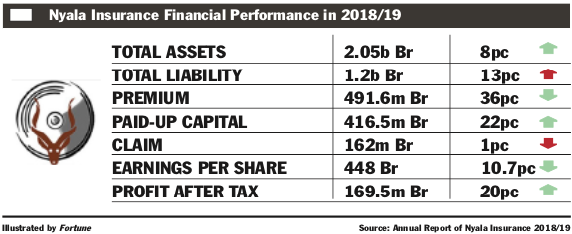
Fortune News | Feb 22,2020
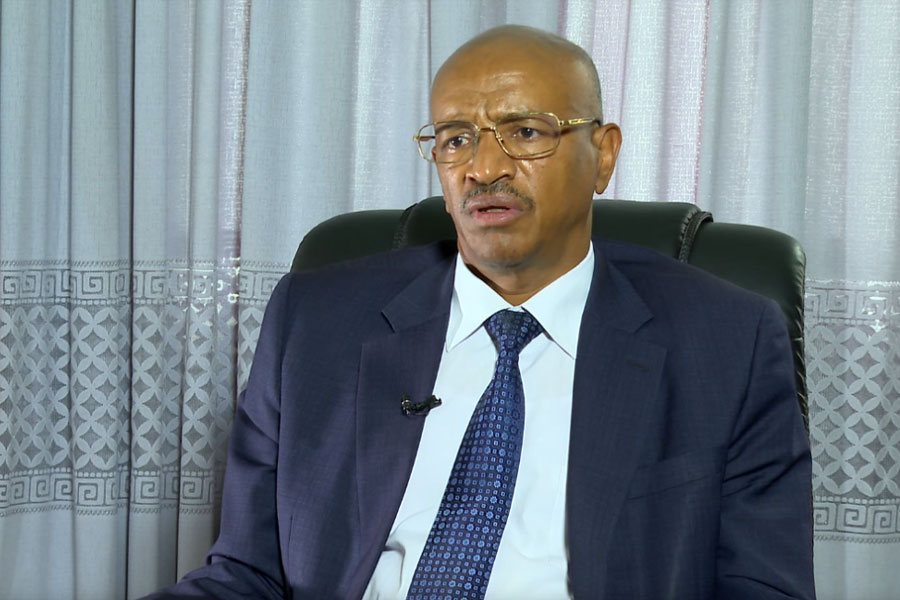
Verbatim | May 10,2025
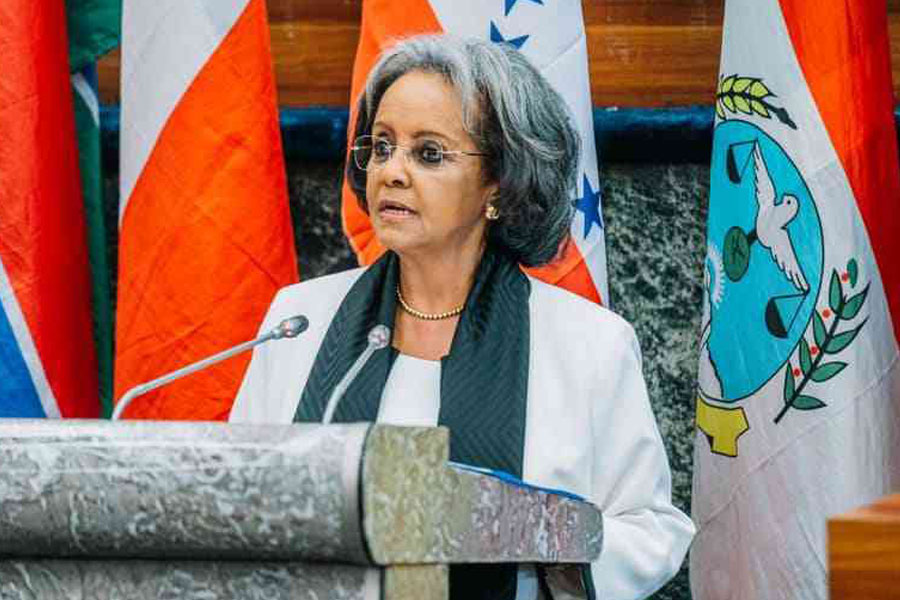
Fortune News | Oct 14,2023

Featured | Jan 07,2023
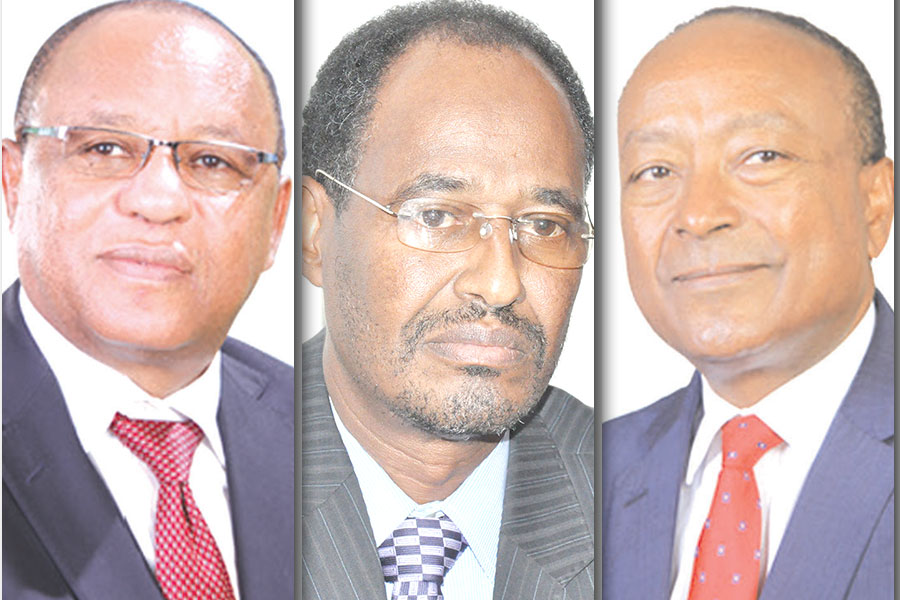
Fortune News | Feb 09,2019
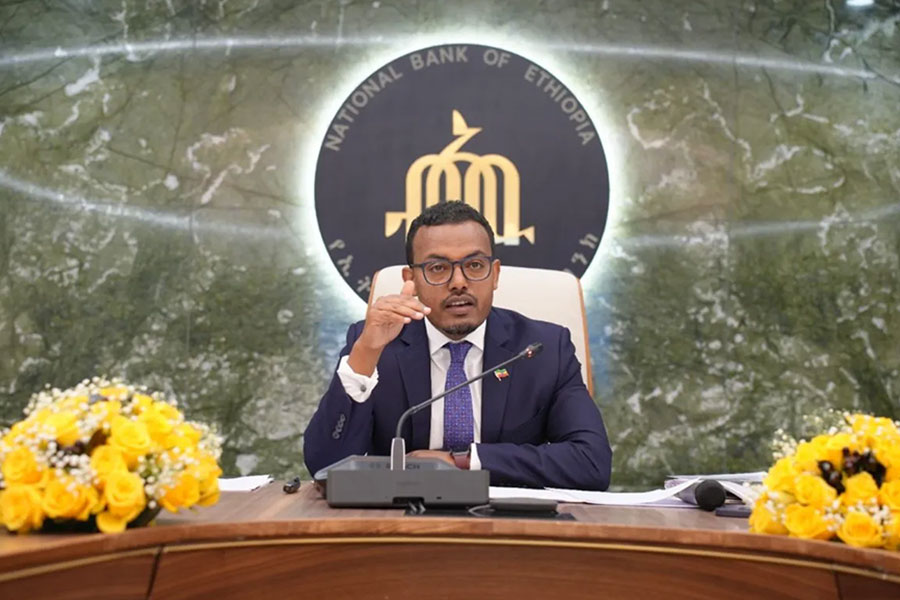
Radar | Jun 07,2025

Viewpoints | Oct 16,2021
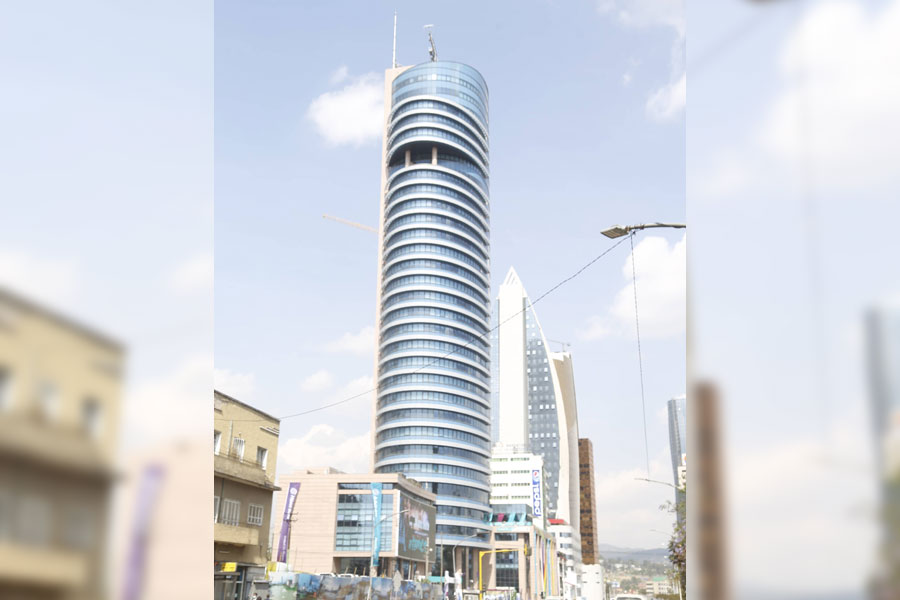
Agenda | Jan 15,2022

Radar | Aug 10,2019

Dec 22 , 2024 . By TIZITA SHEWAFERAW
Charged with transforming colossal state-owned enterprises into modern and competitiv...

Aug 18 , 2024 . By AKSAH ITALO
Although predictable Yonas Zerihun's job in the ride-hailing service is not immune to...

Jul 28 , 2024 . By TIZITA SHEWAFERAW
Unhabitual, perhaps too many, Samuel Gebreyohannes, 38, used to occasionally enjoy a couple of beers at breakfast. However, he recently swit...

Jul 13 , 2024 . By AKSAH ITALO
Investors who rely on tractors, trucks, and field vehicles for commuting, transporting commodities, and f...

Oct 11 , 2025
Ladislas Farago, a roving Associated Press (AP) correspondent, arrived in Ethiopia in...

Oct 4 , 2025
Eyob Tekalegn (PhD) had been in the Governor's chair for only weeks when, on Septembe...

Sep 27 , 2025
Four years into an experiment with “shock therapy” in education, the national moo...

Sep 20 , 2025
Getachew Reda's return to the national stage was always going to stir attention. Once...